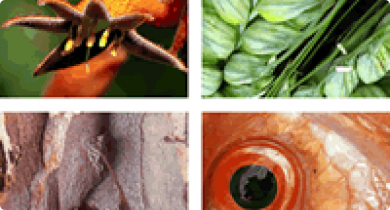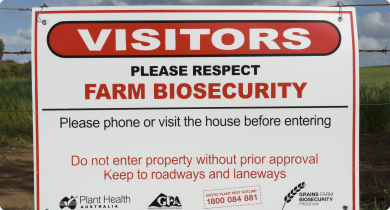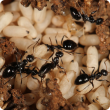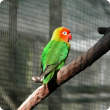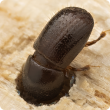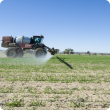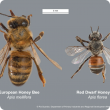Pests, weeds & diseases
Pests, weeds and diseases pose a serious risk for primary producers as they can impact on market access and agricultural production.
To reduce the impact of pests, weeds and diseases, the Department of Primary Industries and Regional Development:
- works with landholders, grower groups, community groups and biosecurity groups.
- provides diagnostic services and information on prevention, management and treatment.
- provides biosecurity and quarantine measures to prevent introduction, and to eradicate or manage current pests.
For advice on pests, weeds and diseases search our website, the Western Australian Organism List or contact our Pest and Disease Information Service (PaDIS).
For diagnostic services, please contact our Diagnostic Laboratory Services.
Filter by search
Filter by topic
- (-) Remove Pests filter Pests
- Pest insects (196) Apply Pest insects filter
- Crops (156) Apply Crops filter
- Horticulture (86) Apply Horticulture filter
- Biosecurity & quarantine (74) Apply Biosecurity & quarantine filter
- Pest animals (70) Apply Pest animals filter
- Biosecurity (65) Apply Biosecurity filter
- Grains (62) Apply Grains filter
- Pest mammals (42) Apply Pest mammals filter
- Fruit (40) Apply Fruit filter
- Vegetables (39) Apply Vegetables filter
- Control methods (37) Apply Control methods filter
- Plant biosecurity (32) Apply Plant biosecurity filter
- Diseases (28) Apply Diseases filter
- Potatoes (25) Apply Potatoes filter
- Chemicals (23) Apply Chemicals filter
- Canola (22) Apply Canola filter
- Mites & spiders (21) Apply Mites & spiders filter
- Invasive species (21) Apply Invasive species filter
- Birds (17) Apply Birds filter
- Nematodes (16) Apply Nematodes filter
- Livestock & animals (15) Apply Livestock & animals filter
- Crop diseases (12) Apply Crop diseases filter
- Mechanical, physical and cultural (12) Apply Mechanical, physical and cultural filter
- Pome fruit (12) Apply Pome fruit filter
- Citrus (12) Apply Citrus filter
- Cabbage (12) Apply Cabbage filter
- Baits & poisons (12) Apply Baits & poisons filter
- Weeds (11) Apply Weeds filter
- Wheat (11) Apply Wheat filter
- Livestock management (11) Apply Livestock management filter
- Lupins (11) Apply Lupins filter
- Quarantine (10) Apply Quarantine filter
- Grapes & wine (10) Apply Grapes & wine filter
- Stone fruit (9) Apply Stone fruit filter
- Barley (9) Apply Barley filter
- Grains research & development (9) Apply Grains research & development filter
- Nursery & cutflowers (8) Apply Nursery & cutflowers filter
- Insecticides (7) Apply Insecticides filter
- Pulses (7) Apply Pulses filter
- Emergency response (6) Apply Emergency response filter
- Oats (6) Apply Oats filter
- Amphibians and reptiles (6) Apply Amphibians and reptiles filter
- 1080 (6) Apply 1080 filter
- Livestock biosecurity (5) Apply Livestock biosecurity filter
- New horticulture crops (5) Apply New horticulture crops filter
- Cauliflower (5) Apply Cauliflower filter
- Agricultural emergency response (5) Apply Agricultural emergency response filter
- Fungi (5) Apply Fungi filter

